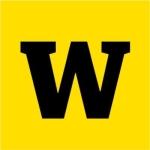Summer Fire Season is Here
It's that time of year again - we become enamoured with the naked flame, be it for a backyard fire or to sizzle sausages. However, the smallest fire can spread rapidly. And Wellington is probably more at risk from a major wildfire than any other urban centre in New Zealand.
We have all the ingredients for danger: steep hills, houses built close to gorse, scrub and regenerating bush - and our wind.
We have a dedicated team of people who inspect properties, issue fire permits and inspect areas where you would like to have a fire and advise you on safety. The team also works alongside the Fire Service to manage vegetation fires in both urban and rural districts.
Our Principal Rural Fire Officer, Jock Darragh, says rainfall over the past few months has increased vegetation growth around the city. Once it dries out (a process that can take only three or four days of sunshine), this increases the likelihood of a fire. A simple barbecue fire can quickly escalate into something serious.
There are a few simple things you can do to help yourself and your neighbourhood:
- Check your barbecue cylinder and hoses.
- Make sure you have a fire permit before lighting any fire.
- Stick to the conditions of the permit. If in doubt, don't light the fire.
- Clear vegetation from around your home, creating at least a 10-metre gap, if possible.
- Don't stack firewood against your house, or under your porch.
- Clear gutters of dead leaves.
- Make sure you have a hose that reaches all parts of your section.
- Have an evacuation plan.
- If your neighbour's section is overgrown, offer to help clear their vegetation.
Jock says work is underway in rural Wellington to develop a protective system for residents and their properties.
"It's much easier for firefighters to douse a fire on an urban property that's connected to the city's water supply, but for people who live in rural Wellington, the situation is entirely different."
With this in mind, Jock and his colleagues are helping to introduce the RAPID (Rural Address Property Identification) system for rural properties in Ohariu Valley.
"Using GPS, we measure the distance to the nearest fixed point (as determined by the Fire Service), and give the distance marker number to the Fire Service. They then develop their own map of properties in the area and know exactly where to go when they get called.
"A marker is placed at the entrance to the property as well. This number is also provided to the Free Ambulance."
RAPID will be introduced to all Wellington rural areas this year. It is already used nationally. Most importantly, if you see flames or smell smoke, call the Fire Service on 111.
For more information on keeping your house and property safe, or on fire permits, call Jock at the Wellington Emergency Management Office on (04) 460 0650.
